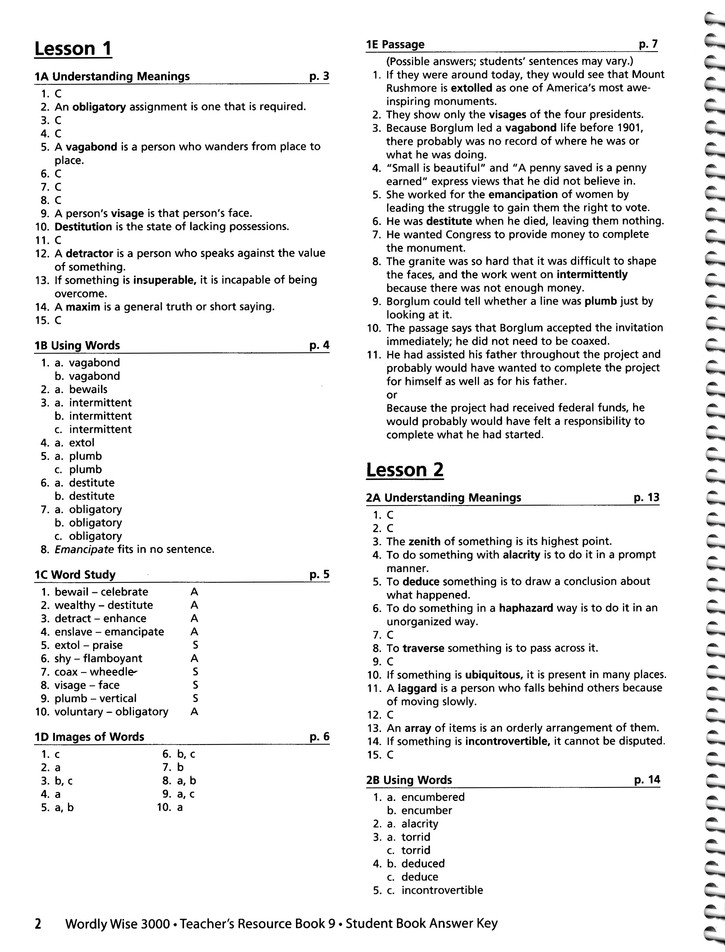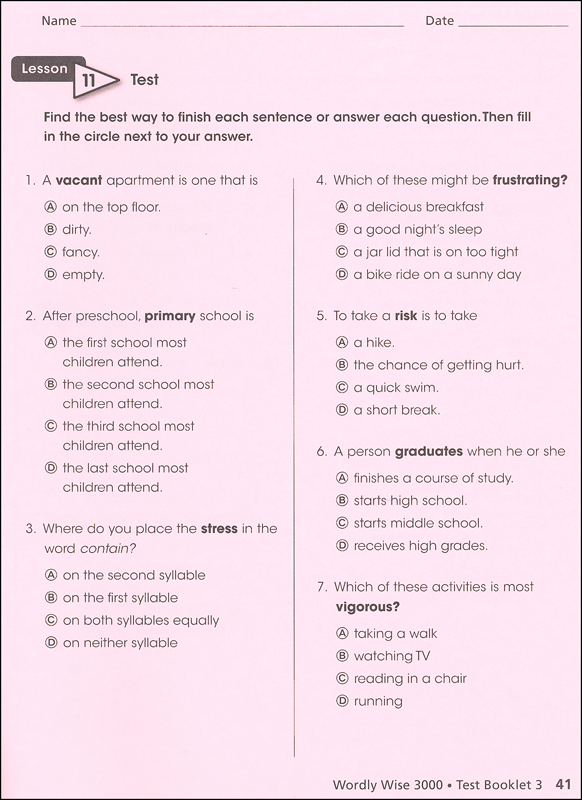Have you ever encountered a word that seemed to defy comprehension, leaving you scratching your head and feeling like an amateur when it comes to vocabulary? We’ve all been there, but fear not! Wordly Wise Book 8 Lesson 9 is designed to equip you with the tools and strategies to conquer a wide range of complex words, transforming you from a vocabulary novice into a linguistic master.

Image: www.onlinedegreeforcriminaljustice.com
This lesson isn’t just about memorizing definitions; it’s about understanding the nuances of words, their origins, and how they can be used in various contexts. By delving into the intricacies of language, Wordly Wise Book 8 Lesson 9 helps you develop a deeper comprehension of not only the words themselves but also the ideas they convey. This newfound literacy empowers you to express yourself with precision and clarity, enhancing your communication skills in both written and spoken form.
Exploring the Words: A Journey of Discovery
Wordly Wise Book 8 Lesson 9 presents a curated list of words, each carefully chosen for its complexity and relevance. This isn’t just a random assortment; it’s a carefully constructed path to vocabulary mastery. Let’s take a closer look at some of the words you’ll encounter in this lesson, along with strategies to make them your own:
Unveiling the Meaning: Definition and Context
The foundation of vocabulary mastery is understanding the precise meaning of each word. Wordly Wise Book 8 Lesson 9 provides definitions for each term, but don’t just stop at the dictionary definition! Try to understand the word’s nuances. What synonyms or antonyms can help you better grasp its meaning? Does the word have multiple definitions?
To solidify your understanding, read example sentences that showcase the word used in context. Analyze how the word functions within the sentence. What other words does it interact with? Understanding a word’s context is key to truly integrating it into your vocabulary.
Tracing the Roots: Etymology and Word Families
Want to truly understand the depth of a word? Delve into its etymology! Where did the word originate? What are its linguistic roots? Knowing the etymology can reveal hidden layers of meaning and unlock a deeper understanding of the word’s history and evolution.
Wordly Wise Book 8 Lesson 9 often includes etymological information, shedding light on the origins of these challenging words. Once you start understanding the root words and suffixes, you’ll find yourself effortlessly recognizing new words based on their common origins.

Image: emileehendrix.blogspot.com
Learning by Example: Sample Sentences and Practice
The true test of your vocabulary knowledge comes when you can use these words in your own writing and conversation. Wordly Wise Book 8 Lesson 9 includes practice exercises that encourage you to apply your newfound vocabulary. By crafting your own sentences using these words, you reinforce your understanding and build confidence in your ability to communicate effectively.
Example Words and Strategies
Let’s delve into a few examples of words from Wordly Wise Book 8 Lesson 9 and explore strategies for mastering them:
- “Ubiquitous”: This word describes something that is everywhere, present in all places. To grasp this, think of the “omni-” prefix, which means “all” or “everywhere”. Consider the example: “The ubiquitous presence of smartphones has transformed the way we communicate.”
- “Inquisitive”: This word describes someone who is eager to learn and ask questions. Think about how curiosity is often linked to questioning. Try using it in a sentence like: “Her inquisitive nature led her to explore the world beyond her own experience.”
- “Assiduous”: This word describes someone who is diligent and persistent in their work. Connect the word to the idea of a bee, which is known for its tireless work ethic. Use it in a sentence such as: “Her assiduous efforts paid off when she finally achieved her goal.”
Expanding Your Vocabulary: A Lifelong Journey
Wordly Wise Book 8 Lesson 9 opens the door to a broader vocabulary, but it’s just the beginning. Vocabulary acquisition is an ongoing journey that should be embraced with enthusiasm. Here are some tips to keep your vocabulary expanding:
- Read Widely and Deeply: Expose yourself to a diverse range of reading materials. Novels, newspapers, magazines, and even blogs can introduce you to new words and help you see them used in context.
- Keep a Vocabulary Notebook: Jot down new words you encounter, along with their definitions, example sentences, and etymological information. Regular review will help you retain these words.
- Engage in Conversation: Use your new vocabulary in conversations with friends, family, or even strangers. The more you practice, the more confident you’ll become.
- Utilize Online Resources: Many websites and apps provide vocabulary-building exercises and games. Explore online dictionaries, etymology resources, and word games to enhance your learning.
Wordly Wise Book 8 Lesson 9
Beyond Words: The Power of Communication
Improving your vocabulary is not simply about impressing others with your knowledge; it’s about empowering yourself to communicate effectively. A rich vocabulary allows you to express nuanced ideas, argue your points with clarity, and engage with others in a meaningful way.
Wordly Wise Book 8 Lesson 9 provides you with the tools and the foundation for building an expansive vocabulary. Take this opportunity to embrace the beauty of language, explore its intricacies, and use it to connect with the world around you. The journey of vocabulary mastery is ongoing, but with dedication and the right resources, you can become a confident and eloquent communicator.






